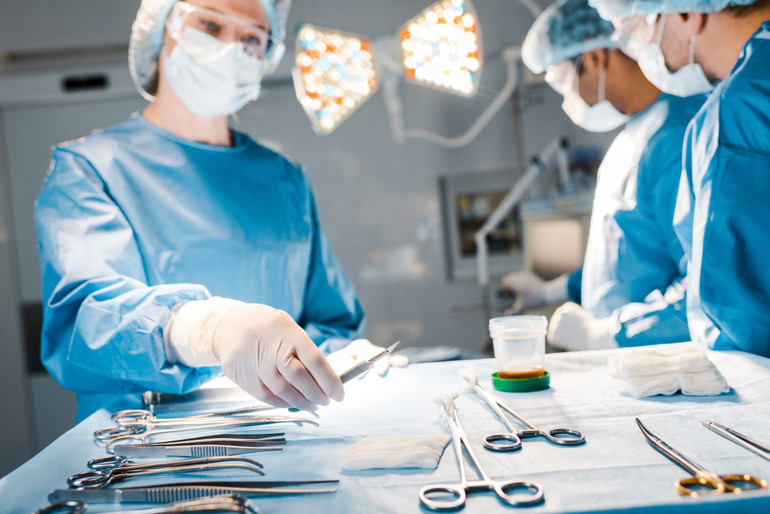Nasal bacteria may cause infections after back surgery: study
[ad_1]
Infections in the postoperative period can cause re-hospitalization and even death.
SSilver/DepositPhotos
The appearance of postoperative infections is mostly provoked by the patient’s own colonies of microbes on the body. Most cases of infection with these bacteria occur outside of hospitals.
The authors of the study came to this conclusion, published in the journal Science, writes ScienceAlert.
Among the various types of infections associated with the provision of medical care, surgical ones are traditionally considered particularly problematic. They are often the cause of re-hospitalization and death in the postoperative period,
To prevent infection, medical professionals sterilize all surgical equipment, use ultraviolet light to clean operating rooms, and follow strict protocols regarding surgical clothing and indoor air conditions.
Despite this, approximately one in 30 operations ends with a surgical site infection. One of the ways to overcome this problem is to prescribe antibiotics for prophylaxis in the postoperative period. However, their frequent use leads to antibiotic resistance (insensitivity of bacteria to medical agents).
As part of the study, scientists studied all types of bacteria and tested their genes for resistance to antibiotics. The analysis was limited to the study of infections after spine surgery.
Over the course of a year, scientists collected samples of bacteria from the nose, skin and feces of more than 200 patients who were preparing for surgery. They then followed the study participants for 90 days and compared the microbes they collected to those that caused infections in the patients.

Employees of educational institutions carefully sterilize instruments, use ultraviolet light to clean the premises.
VitalikRadko/DepositPhotos
The results showed that the bacteria that colonize the upper back (around the neck and shoulders) are similar to the microbes in the nose. And the bacteria in the lower back are similar to the microbes in the intestines and feces.
The frequency of the presence of colonies on the skin corresponds to cases of postoperative infections. 86% of the bacteria that caused the infection genetically matched the microbes that were on the patient’s body surface before surgery.
“If the most likely source of surgical infection – the patient’s microbiome – is known in advance, it gives medical teams the opportunity to protect against it even before the planned procedure.” – claim the authors of the study.
The results of the analysis are likely to contribute to the use of information about the microbiome in the selection of an individual antimicrobial agent for a patient.
“We believe that patient-centered approaches to infection prevention can benefit both hospitals and patients.” – scientists add.
Earlier we told what kind rules be guided when choosing a clinic for surgery.
[ad_2]
Original Source Link











